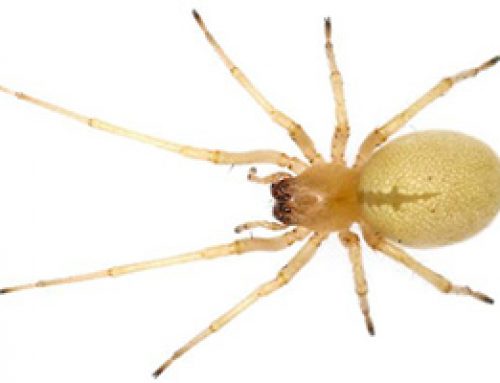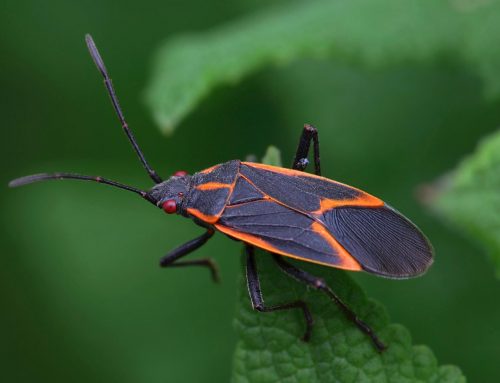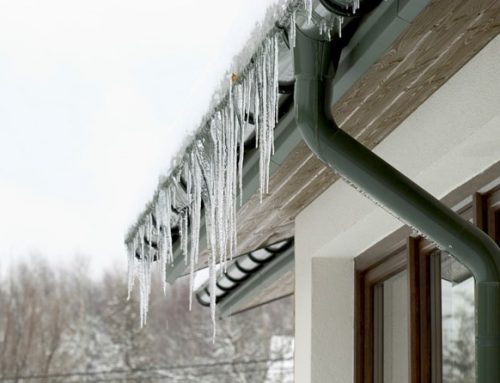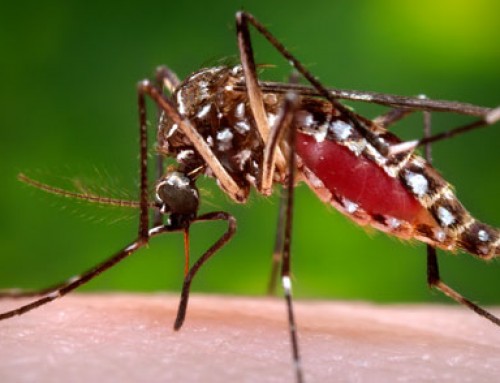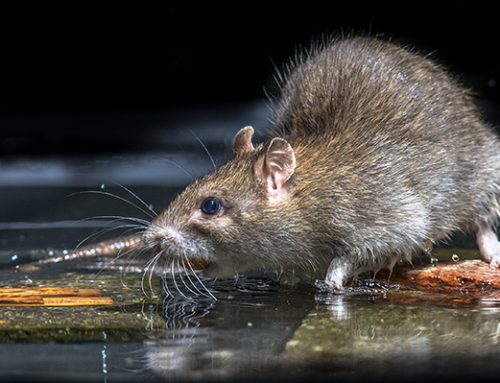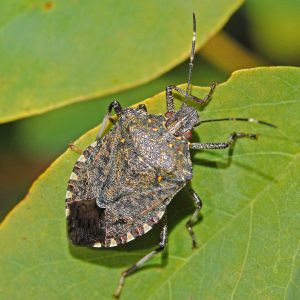 It’s not a skunk! The stink bug can give off a foul odor to ward off predators, when it feels threatened or when humans step on them! That’s how they got their name. Stink bugs have piercing mouths. They are the shape of a shield, approximately 5/8 to ¾ inches tall and are native to Asia. Though they are harmless to humans, they can still be an invasive pest during the fall and winter seasons. Particularly in the cooler, northern parts of the Northeast. They do not reproduce indoors but can be a problem if they overpopulate outside your structure both because of the smell, and because they will eat a lot of vegetation. Stink bugs have a reputation that precedes them for ruining crops, being invasive and overpopulating.
It’s not a skunk! The stink bug can give off a foul odor to ward off predators, when it feels threatened or when humans step on them! That’s how they got their name. Stink bugs have piercing mouths. They are the shape of a shield, approximately 5/8 to ¾ inches tall and are native to Asia. Though they are harmless to humans, they can still be an invasive pest during the fall and winter seasons. Particularly in the cooler, northern parts of the Northeast. They do not reproduce indoors but can be a problem if they overpopulate outside your structure both because of the smell, and because they will eat a lot of vegetation. Stink bugs have a reputation that precedes them for ruining crops, being invasive and overpopulating.
Why Stink bugs are a problem:
Stink bugs are insects that eat leaves, flowers, fruit and other crops. Their appetite makes them notorious for ruining crops and foliage. They give off other odors (in addition to their foul odor) that attracts other stink bugs. If farmers or orchard owners do not take care of their stinkbug problems, they can easily be facing an infestation.
When they enter your home:
Stink bugs are problematic for homeowners during the fall and winter months. These are the months when Stink bugs overwinter, looking for warmth and shelter for the colder months because they enter diapause, a hibernation-like state. In the months of April and May, the Stink bugs will emerge to lay eggs about 250 eggs and eat.
Where they enter your home:
Stink bugs find trees near structures and then enter the structure through gaps in windows or door trims, soffits, chimneys, cracks in the foundation, and attics.
What to do:
If you see a stink bug or several, do not try using aerosol or powder pesticide. If they die within your home in large numbers, it can attract other scavenger insects. We recommended you vacuum up the bug you see and then give us a call. We will take a look at your infestation, make sure we address entry points, provide control, and help you remove unwanted Stink bugs.
Call to set up an appointment with one of our
knowledgeable technicians today! 1-800-572-9797
Read more on overwintering pests. Click here.
Reference: Wikipedia.org
Photo: Wikipedia.org

